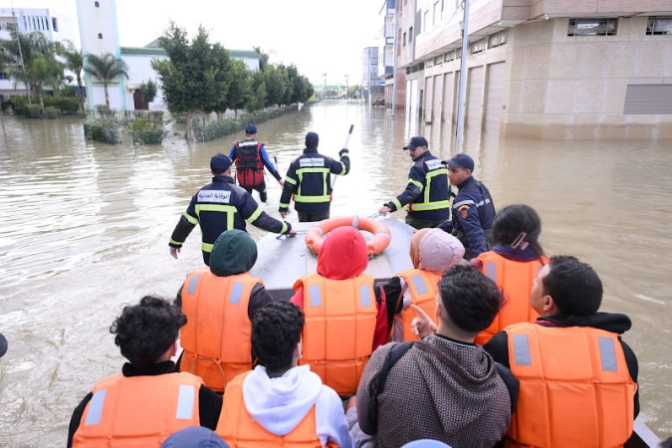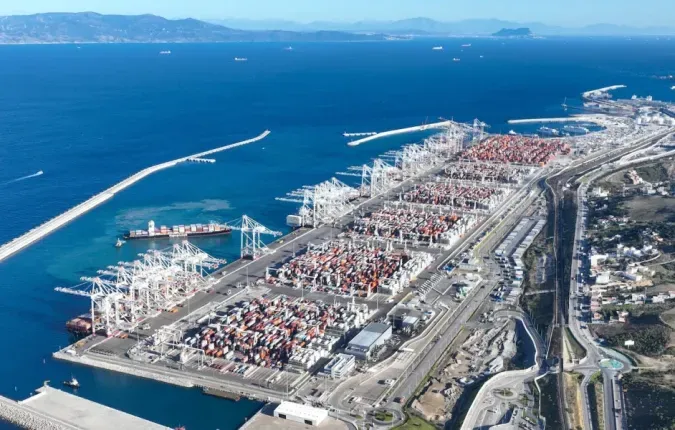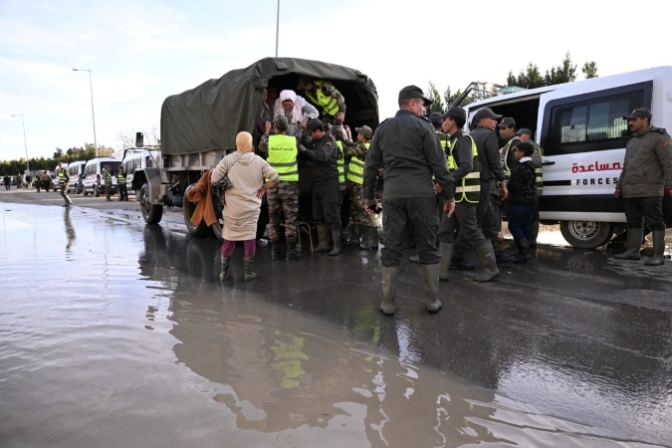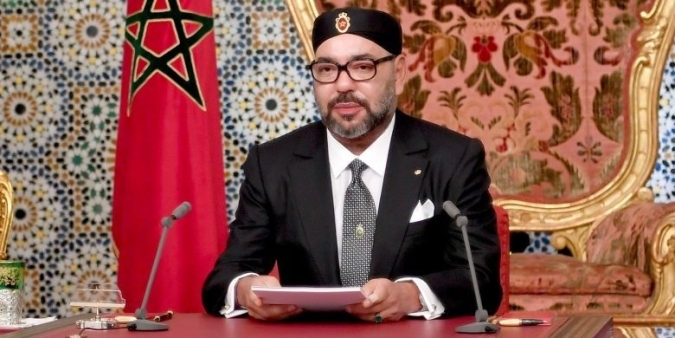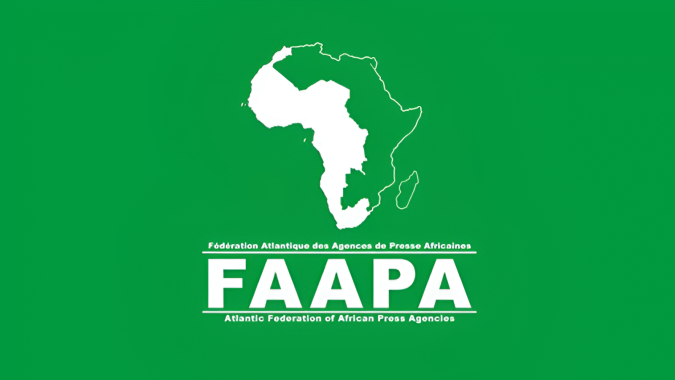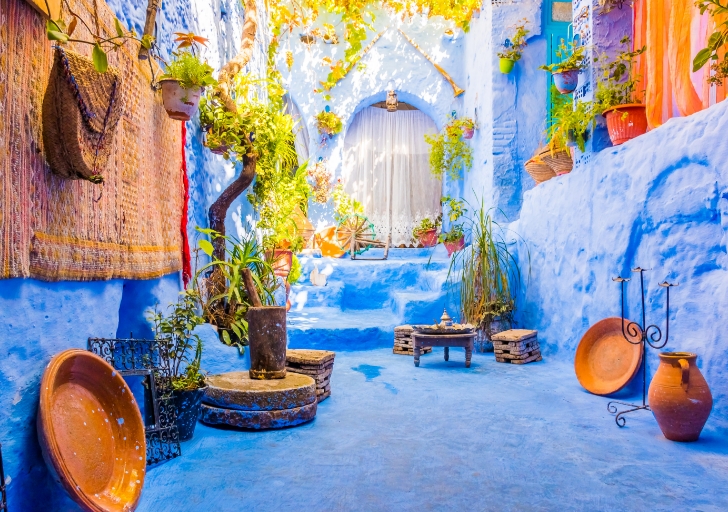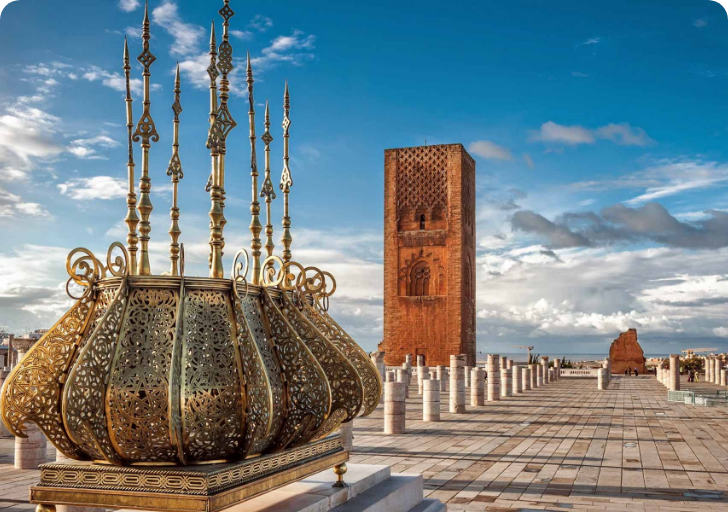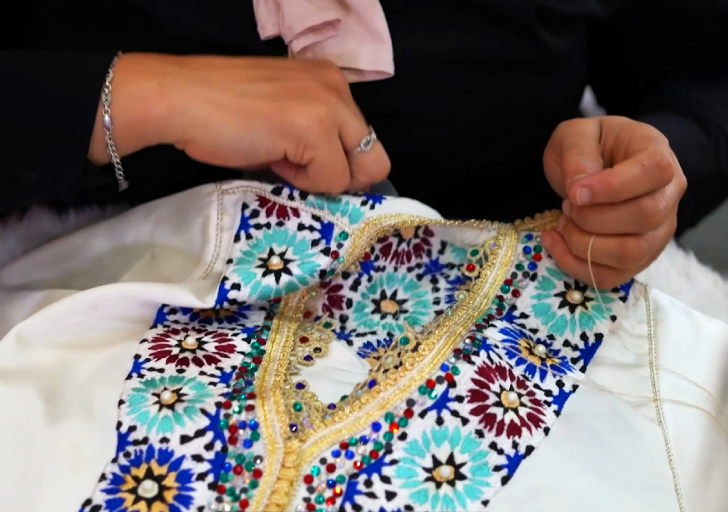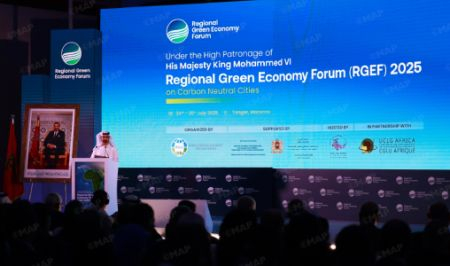
The first edition of the Regional Green Economy Forum (RGEF) kicked off on Thursday in Tangier with a focus on the theme “Empowering African Cities, Paving the Path to Carbon Neutrality.”
This event, organized under the High Patronage of HM King Mohammed VI, is an initiative of the World Green Economy Organization (WGEO), supported by the Moroccan Ministry of Energy Transition and Sustainable Development, the Tangier-Tetouan-Al Hoceima Regional Council, and United Cities and Local Governments of Africa (UCLG Africa), with the aim of promoting sustainable solutions to support African cities.
The Forum brings together experts and representatives from local governments, national, African, and international institutions, to support Africa’s efforts toward sustainable, low-carbon urban development, strengthen cooperation between local, national, and international actors, encourage the exchange of experiences and best practices, and promote investment in green infrastructure, renewable energy, and sustainable mobility.
The Forum also serves as a platform for discussion on current themes such as multi-level governance, energy transition, circular economy, sustainable mobility, and financing mechanisms, with the aim of supporting strategies that lead African cities toward carbon neutrality.
Morocco's Minister of Energy Transition and Sustainable Development, Leila Benali, reiterated the Kingdom’s commitment to supporting joint African action to build a green, resilient, and prosperous future for the continent, one that meets the aspirations of its people and protects the rights of current and future generations.
In a video message, the minister emphasized that Morocco, under the farsighted leadership of HM King Mohammed VI, has made South-South cooperation a strategic choice and a central pillar of its foreign policy, based on active solidarity and integration, highlighting several pioneering initiatives launched by the Kingdom to strengthen climate action in Africa.
WGEO President Saeed Mohammed Al Tayer noted that the Forum is taking place as climate change becomes a tangible reality, with African cities on the front lines facing rising temperatures, water scarcity, and environmental degradation. He pointed out that these challenges are also drivers of positive transformation toward sustainable development.
He stated that WGEO, through the Global Alliance on Green Economy (GAGE), which includes representatives from 100 countries, works to ensure inclusive, resilient green growth, with Africa as “the cornerstone of this alliance,” aiming to build fair and sustainable cities capable of adapting to climate change by strengthening their capacity to develop feasible green projects, renewable energy solutions, sustainable mobility, and waste-to-energy initiatives.
President of the Tangier-Tetouan-Al Hoceima Regional Council, Omar Moro, emphasized the region’s aspiration to become a model of green economy transition, leveraging its role as a bridge between Africa and Europe, underlining its efforts to promote investment in renewable energy, develop sustainable infrastructure, support green innovation, raise awareness of the green economy, and engage citizens in environmental preservation.
He also stressed that the Forum is an effective platform for experience-sharing between local governments, the public and private sectors, and civil society, helping unite the efforts of city leaders and local stakeholders to design practical projects and foster public-private partnerships aimed at achieving carbon neutrality in urban areas.
Secretary General of UCLG Africa, Jean Pierre Elong Mbassi, pointed out that although Africa contributes only 3-4% of global greenhouse gas emissions, it is one of the continents most exposed and vulnerable to climate change effects.
He stressed that Africa has the capacity to surpass polluting and unequal development models by building greener, smarter cities, as already demonstrated by numerous African cities, both large and small, committed to innovative sustainability initiatives.
United Nations Resident Coordinator in Morocco, Nathalie Fustier, highlighted that this regional forum fits within a critical momentum of South-South cooperation and experience-sharing among African cities, describing it as a strategic platform for peer learning, identifying bankable projects, building coalitions, and developing carbon neutrality pathways tailored to African realities.
She also emphasized the efforts of the UN System in Morocco to support cities and territories in this ambitious green transition and reiterated the UN's full commitment to accompanying this process with all partners, adding: “It is our collective responsibility to make African cities more sustainable, inclusive, and resilient living spaces.”
Tangier Mayor Mounir Laymouri, also President of the Moroccan Association of Municipal Council Presidents (AMPCC), affirmed that Africa lies at the heart of the green transition, stating that this transformation depends on empowering cities and local authorities with the necessary resources to play their role. He also noted that African local governments often face limitations in financial and human resources.
The two-day event includes debates on various green economy-related topics, such as carbon neutrality, policies and governance, greening African cities, renewable energy solutions, sustainable transport, waste management and circular economy, smart water management, and green industrialization.
